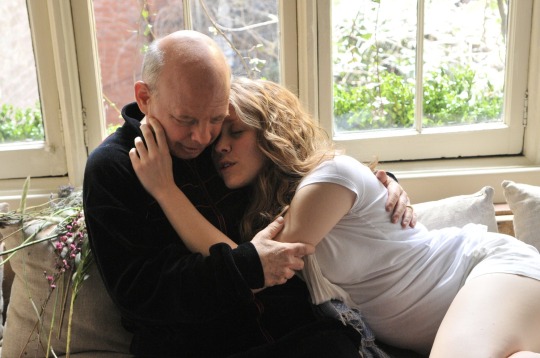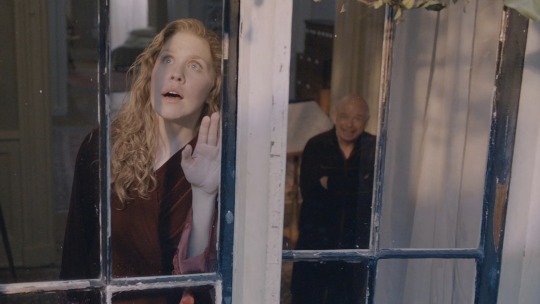Jonathan Demme’s ‘A Master Builder’ and the Elusive Magic of Bringing Stage to Screen by Tina Hassannia
By Yasmina Tawil

Criterion’s three-film box-set of the works of Wallace Shawn and Andre Gregory—My Dinner With Andre, Uncle Vanya, and A Master Builder—features several supplements, including an interview between the theater artists and writer Fran Lebowitz. She makes a frank confession: “I don’t like watching theater.” Gregory, a man who’s spent his entire life in the theater, says he feels the same way.
Lebowitz explains that she loves to be drawn into a good film or novel, but, with the exception of Shawn’s work, she’s never experienced the same with theater. She’s not alone. While theater may not exactly be a dying art form, it was long ago upstaged by cinema and television as our de-facto entertainment, and our appreciation for it has dwindled in kind. Theater requires us to suspend disbelief that we’re watching mere make believe, more forcefully than film, which benefits from a metaphysical distance from the viewer. Why sit through 2-3 hours of physical artifice just to see actors move through the spectrum of human emotion when there are so many easier and supposedly better options?
Those lucky enough to have witnessed really good theater know this a philistine’s line of thinking, but even so, its cultural relevance is tightly bound to its usurper, cinema: film adaptations of plays are usually better known than famous productions. (Consider the populist understanding of A Streetcar Named Desire without Marlon Brando—it doesn’t exist.) But adaptations are in essence, films, not theater. Transmitting the visceral pleasures of actual theater is nigh-impossible. If you’ve ever made the mistake of watching a recorded stage performance, you know you’re missing an essential thing privy to members of the audience. No matter the quality of the performance or camerawork, filming a play cheapens the experience. Theatricality is transmogrified into an over-exaggerated mess onscreen. The chemistry unique to each performer and audience, which gives birth to an atmospheric energy that changes with every performance, is lost.
A Master Builder director Jonathan Demme tries to describe a similar sentiment in another Criterion supplement, an interview between himself, Shawn, Gregory, and critic David Edelstein. Having seen the duo’s final production of A Master Builder —which Demme calls “literally spell-binding” and “very emotionally intense”— the director chronicles in the interview his experience watching Gregory watch the play. Having finished his part as Brovik, Gregory joined the audience, but, according to Demme, appeared to subconsciously direct the performers as if through an “energy field.”

“I remember seeing his face responding to everything that was going on there and feeling the connection,” he says. Edelstein follows up with questions, as what he’s hearing sounds too “woo woo”: Were the performers looking at Gregory? Was he in their peripheral vision? … What, exactly? It’s not Demme’s fault he can’t eloquently explain the phenomenon, because words rarely do the experience of live theatre justice. It’s an inexplicable sensation that can only be experienced to be understood.


